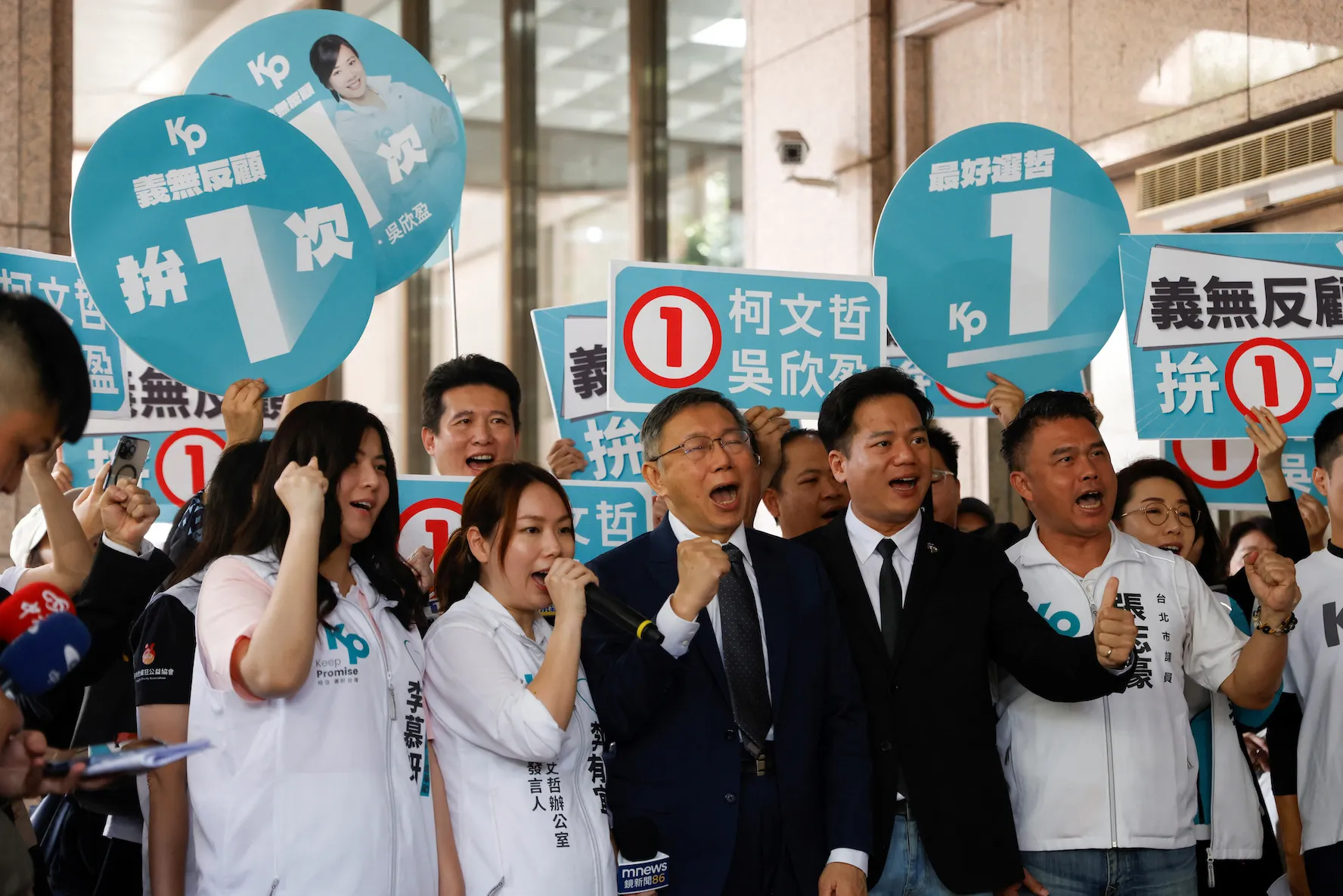Tensions Escalate As Taiwan Approaches Pivotal Presidential Election
In the lead-up to Taiwan's critical presidential election on January 13, tensions escalate as Taiwan approaches pivotal presidential election.
Author:Rhyley CarneyReviewer:Paula M. GrahamJan 09, 20248.6K Shares125K Views

In the lead-up to Taiwan's critical presidential election on January 13, tensions escalate as Taiwan approaches pivotal presidential election.
Chinese President Xi Jinping's New Year address, asserting the "reunification of the motherland" as a "historical inevitability," sets the stage for a high-stakes battle for regional influence between Beijing and Washington.
Front-Runner And Stakes For Regional Influence
The front-runner in this tightly contested election is current Vice President William Lai from the Democratic Progressive Party (DPP), advocating for Taipei's sovereignty and seeking to strengthen ties with the U.S., Europe, and other democracies.
His main rival, Hou Yu-ih from the Kuomintang (KMT) party, takes a more conciliatory approach toward Beijing.
Taiwan is a major producer of advanced microchips, accounting for over 90% of the global supply, which heightens the geopolitical significance of this election.
A potential regional conflict over Taiwan could have profound consequences for global security and supply chains, affecting industries from smartphones to electric vehicles.
Taiwan’s Main Political Parties
Politicians tend to ignore Taiwan's colonial history in the 20th century, when the island was under Japanese rule from 1895 to 1945. Taiwan served as a safe haven for the downed Kuomintang government following the Chinese Civil War.
Until 1987, the KMT imposed martial law and governed Taiwan as a one-party state. It was in 1986 that the Democratic Party (DPP) was established, following the emergence of a democratic movement in the 1970s.
Though numerous smaller parties have emerged in recent years, the KMT and DPP still hold sway in Taiwanese politics. The Beijing Communist Party has threatened to bring the two factions together, and President Xi Jinping has designated 2049 as the target year for the "rejuvenation of the Chinese nation."
In response to shifting voter preferences and demographics, smaller parties such as the TPP have surfaced.

Outgoing President Faces Aggression
The outgoing president, Tsai Ing-wen, has faced increased aggression from Beijing during her two terms.
In September of the previous year, the Taiwanese defense ministry reported a record number of Chinese warplanes breaching the median line of the Taiwan Strait, further escalating tensions.
The election features three main candidates: Lai from the DPP, Hou from the KMT, and a third-party contender, Ko Wen-je, leading the Taiwan People's Party (TPP).
Polls indicate a close race, with Lai holding a narrow lead over Hou, but the margin remains within the statistical margin of error.
Implications For Cross-Strait Relations
China, viewing Taiwan as a breakaway province, considers the DPP its arch-nemesis. The potential re-election of the DPP could signal a lack of public appetite for reunification, especially among the younger generation.
As the election unfolds, both Lai and Hou engage in rallies to garner support. The international community closely watches the election, recognizing its broader implications for the geopolitical landscape.
The volatile situation prompts concerns about potential military escalation. China's recent military exercises around Taiwanese airspace and waters, following visits by international figures like Nancy Pelosi, underscore the fragile nature of the cross-strait relationship.
The world anticipates the election results and their repercussions, aware that the outcome will not only shape Taiwan's future but also influence regional stability and global dynamics.
As voters head to the polls, the significance of Taiwan's contested status and its impact on democracy, security, and economic potential remains a focal point of global attention.
Final Words
The upcoming presidential election in Taiwan is a pivotal moment in the country's geopolitical landscape, with implications beyond its borders.
The conflict between pro-Beijing forces represented by Hou Yu-ih of the Kuomintang and pro-sovereignty forces under Vice President William Lai emphasizes the precarious balance in cross-strait relations.
The election's outcome, along with its potential impact on the Legislative Yuan, could significantly shape the Asia-Pacific region's geopolitical landscape.

Rhyley Carney
Author

Paula M. Graham
Reviewer
Latest Articles
Popular Articles